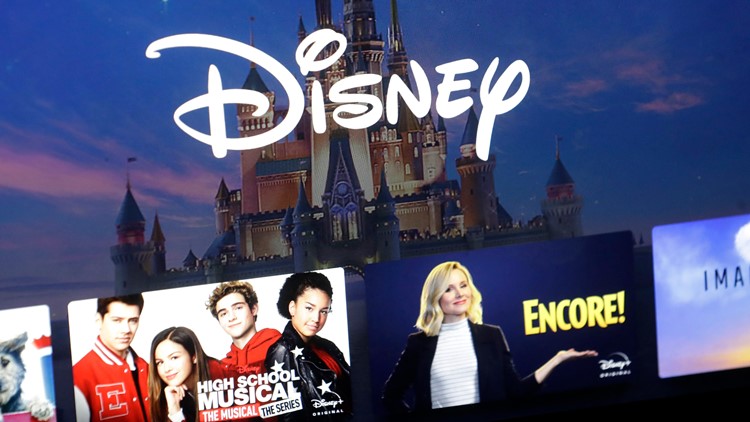WASHINGTON — Three Marvel movies will be Disney's first foray into mature content on its Disney+ streaming platform, the company announced Thursday.
"Deadpool," "Deadpool 2" and "Logan" will all join the streaming service's lineup in the U.S. on Friday.
"Deadpool," the 2016 anti-hero movie, and its 2018 sequel, follow foul-mouthed and fourth wall-breaking mercenary Wade Wilson on his adventures.
And 2017's "Logan" follows the titular X-Men hero Wolverine, played by Hugh Jackman, and a terminally ill Charles Xavier as they defend a young mutant in a post-apocalyptic world.
Both were produced under Fox's brand of Marvel films, which focused on the X-Men and related characters. Marvel sold the rights to those characters in a deal in the 90s while struggling for cash.
Since both Marvel and Fox are owned by Disney, there has been much speculation about how the company will handle bringing characters owned by Fox into the wildly popular MCU.
As part of Thursday's announcement, "Deadpool" star Ryan Reynolds joked that some classic movies already on Disney+, like "Old Yeller" and "Bambi" should be rated R "for irreversible trauma."
The timing of the announcement has some fans speculating Disney could officially announce another "Deadpool" sequel on Saturday at San Diego Comic Con.
Disney+ is the multi-billion dollar company's answer to streaming platforms such as Netflix and Hulu. It features a catalog of films from across the various studios owned by Disney, including Marvel, Lucasfilms (the makers of Star Wars), Fox and National Geographic.
Earlier this year, Disney+ announced it would be enacting a lower-cost subscription supported by ads. Currently, Disney+ only offers a regular subscription for $8 a month, or $80 per year.
The introduction of R-rated films to Disney+'s lineup comes as streaming services look to an uncertain future clouded by soaring inflation. As consumers look to slash their budgets, streaming subscriptions can often be the first thing to go.
Rival platform Netflix shed almost 1 million subscribers during the spring, partly due to the economic crunch and partly due to competition from various platforms trying to make their mark in the crowded market.



